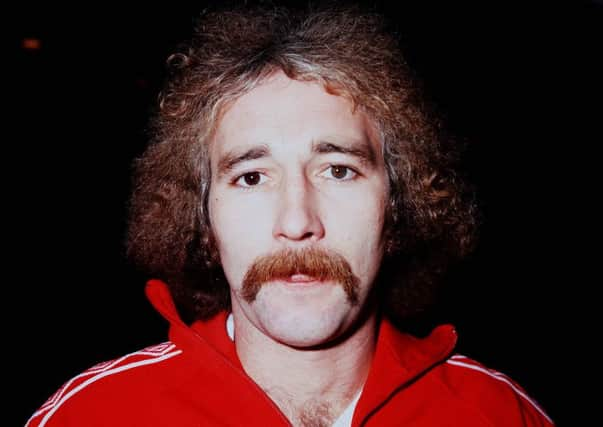Obituary: Gerry Gow, footballer


Gerry Gow, who has died after a long battle against cancer, was one of football’s cult heroes of the 1970s and early 1980s – the era of long hair and long moustaches, both of which the Drumchapel-born midfielder sported in his pomp with Bristol City and Manchester City.
It was the age of the midfield “enforcer”, a role which Gow was cast into. He was certainly hard, he gave no quarter, but, like other Scots of his ilk and his time – Billy Bremner, Graeme Souness, Davie Hay and Archie Gemmill, for instance, he could play more than a bit.
Advertisement
Hide AdAdvertisement
Hide AdPlaying for relatively unfashionable Bristol City in the old Second Division – today’s Championship – Gow was unlikely to be watched by the Scotland manager – things were different then, but he did pick-up one Scotland Under-23 cap, against England, at Newcastle in 1974. In this game he came off the bench to replace Jimmy Calderwood, and formed a formidable central midfield partnership with Souness.
Two years later, in 1976, Gow, who had joined City straight from school in Drumchapel, was himself playing in the English top-flight, as City won promotion back to the English top division they had last graced in 1911. That successful team had a tartan core, with Gow, the former Morton pair Gerry Sweeney and Donnie Gillies – who had played alongside Gow in that 1974 Under-23 team – and Edinburgh-born Tom Ritchie all playing their part.
City remained in the top division until 1980, but while the club went down Gow, who had represented the “Robins” 375 times, stayed in the First Division after Manchester City paid £175,000 to sign him.
He spent a little over a season at Maine Road, but, in that time he played twice at Wembley, in the replayed 1981 FA Cup Final, the 100th final – won for Tottenham by a memorable goal from Argentinian Ricky Villa.
His next stop was on the other side of the Pennines, at Rotherham United’s Millmoor, scene of one of the great Gerry Gow stories. A young Neil Redfearn, these days a veteran English club manager, was making his debut for Bolton Wanderers, and Gow was his immediate opponent.
Gow introduced himself to the 17-year-old Redfearn thus, in his gruff Glaswegian tones: “Son, Ah’m gonnae brek your f***ing leg.” Somewhat put-out, Redfearn asked the advice of an older teammate, who told him, “Just ignore him, he doesn’t mean it”. Only for Gow to return and assure Redfearn: “Aye son, Ah did f***ing mean it”. Redfearn made sure not to go near Gow again, just in case.
From Millmoor it was back across the Pennines to Burnley, signed again by John Bond, who had taken him to Manchester City. However, this move didn’t work out and Gow, after 500 games in the Football League, dropped into non-league football to become player-manager of Yeovil.
When his reign at Yeovil ended, he remained in Dorset, to manage Weymouth, before settling in Portland, Dorset.
Advertisement
Hide AdAdvertisement
Hide AdHe played golf, enjoyed pub games and took great delight in encouraging his grand-sons, one of whom, 16-year-old Brennan Camp, is now playing regularly in the Bournemouth youth team.
He had various jobs, but none could match the buzz of football.
Football had not forgotten Gerry Gow, however, and in 2012 Bristol City and Manchester City met at Ashton Gate in a much-delayed testimonial for the well-remembered hero of th Ashton Gate terraces.
Gow is further remembered by being namechecked in the song: This One’s For Now in the 2014 Half-Man Half- Biscuit album Urge For Offal.
He was diagnosed with lung cancer and fought the disease with the same determination he had shown in midfield.
Gerry Gow is survived by wife Joolz, son Chris, daughters Rachael and Jennifer, nine grandchildren and one great grandchild.
MATT VALLANCE